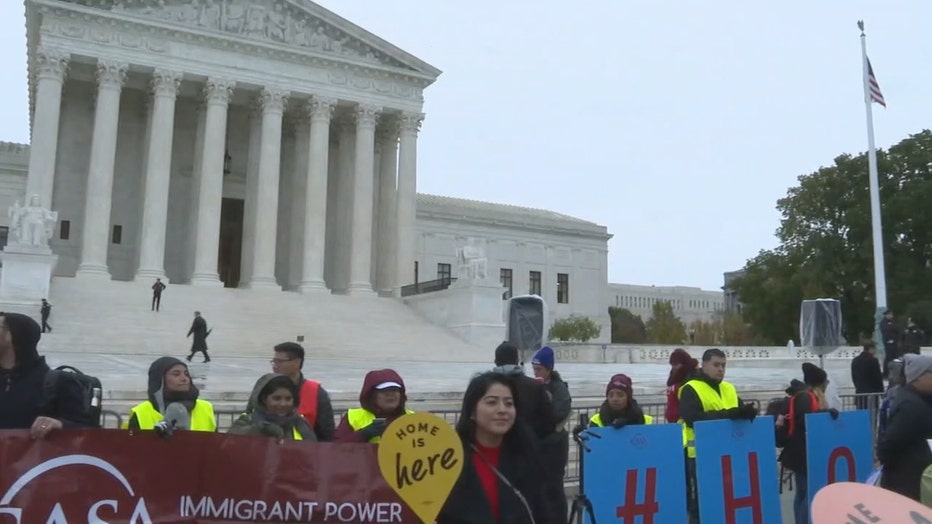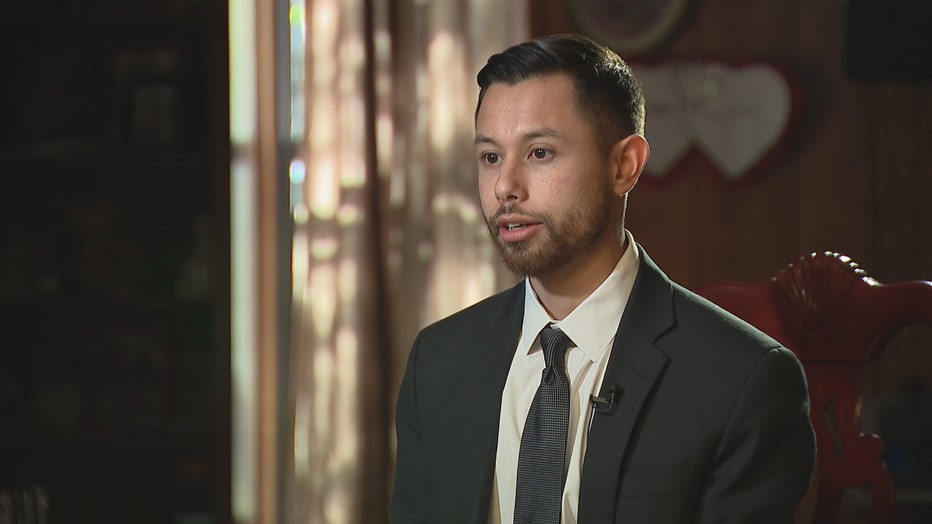North Texas ‘Dreamers’ closely watch Supreme Court arguments over DACA program

North Texas ‘Dreamers’ closely watch Supreme Court arguments over DACA program
DACA has continued because of lower-court rulings. The high court's decision will be made in June. The decision could affect more than 700,000 so-called ‘Dreamers.’
DALLAS - The U.S. Supreme Court appears to lean toward letting the Trump administration end the Deferred Action for Childhood Arrivals program.
The Obama-era program protects immigrants who were brought into the country illegally as children.
Justices heard nearly an hour and a half of testimony on Tuesday. Based on the questions they asked, the conservative wing of the court seemed to agree the Department of Justice properly shut down the program in 2017.
DACA has continued because of lower-court rulings. The high court's decision will be made in June. The decision could affect more than 700,000 so-called ‘Dreamers.’

Texas is one of the states suing to end DACA. It's second only to California, with about a quarter-million people whose lives would dramatically change if the program is rescinded.
27-year-old Juan Carlos Cerda was brought to the United States 20 years ago. He graduated from Grand Prairie High School and then went to Yale on a scholarship.
FOX 4 first met Cerda in January 2017 when President Donald Trump announced he wanted to end the DACA program. Cerda was a Dallas ISD elementary school teacher who now works to help other Dreamers like himself.
“I constantly check the news to see what's happening with the program,” Cerda said. “My life has been here. I feel I am American, and I can't even contemplate going back to Mexico.”

Jennifer Villani Burton is a Dallas immigration attorney closely watching the debate.
“DACA recipients in a lot of people's minds, we think of them as kids. But a lot of them are in their 30s now,” she said. “A lot of them are parents. They're professionals. They're your neighbors. People are losing out on the ability to live the life they've made here in the United States.”
Justices are weighing not only President Trump's efforts to end DACA, but also those of former President Barack Obama who expanded DACA in 2014.
Burton says the decision could come down to one conservative justice who's sided with liberal justices in the past.
“Chief Justice Roberts has been the deciding vote a lot, and he is kind of unpredictable,” she said.
It’s unpredictable, like Cerda's future. Time may be running out and yet isn't moving at all.
“I was admitted to TCU School of Business for a full-time MBA with a $92,000 scholarship. I could be doing that right now,” Cerda said. “But because of this worry and this uncertainty, I just cannot go to school now knowing that all my education could go to waste.”
“I think it's really too soon to call,” Burton said. “I, along with many practitioners, we're not sure what's going to happen.”
A decision isn’t expected to be made until Spring 2020.

